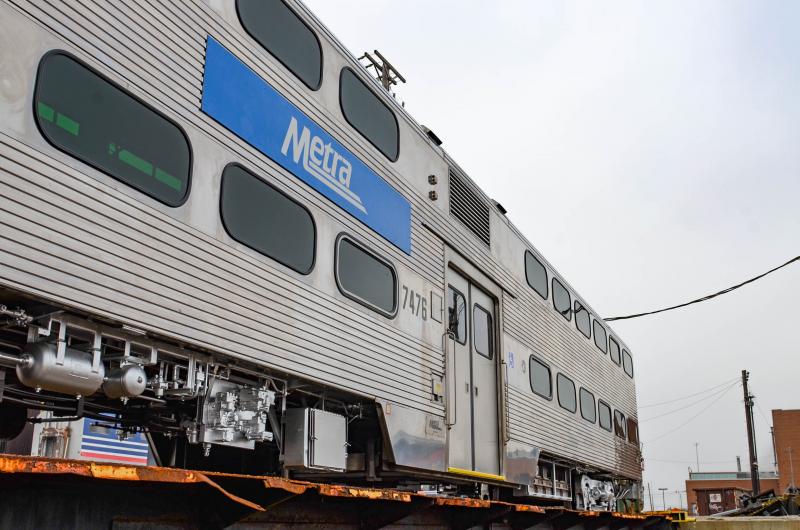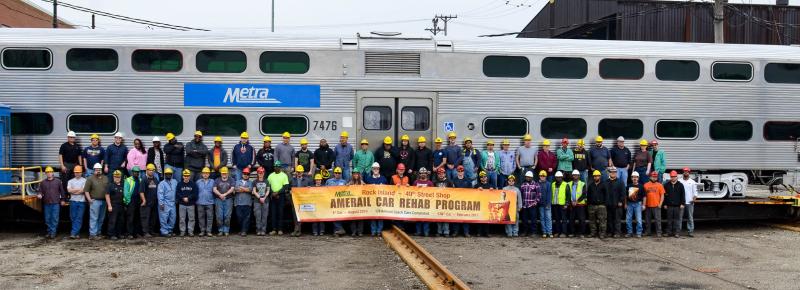
Bruno Zawisza has waited years to place a small silver plaque inside the vestibule of Metra Car 7476.
The plaque distinguishes the car as one of 176 that the dedicated team of men and women at the 49th Street Car Shop along the Rock Island Line have gutted and refurbished. It’s the final touch to every rehab.
Zawisza’s wait will come to an end this month.
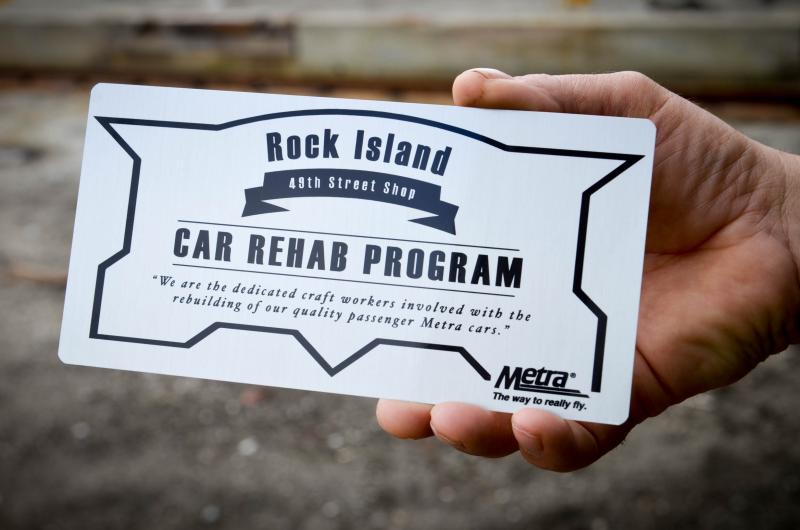
Car 7476 is the final car to be rehabbed under the $115 million Amerail Car Rehab Program, which started nearly seven years ago in August 2010 to extend the life of Metra’s railcars and add features that will enhance the passenger experience.
“It’s an accomplishment for all the staff that worked on this, because we’ve never done anything like this before,” said Zawisza, the 49th Street Car Shop superintendent. “It gives us all a sense of pride because of all the hard work that went into this project.”
The rehabilitated cars were built by Amerail (originally Morrison Knudson) between 1995 and 1998. The car shells were built in Japan but the cars were assembled in Chicago.
Each car was gutted and outfitted with new passenger amenities such as electric outlets to power phones and other small electronics, sensitive-edge outer doors that will retract if they come in contact with a person or object, four new LED signs per car to display station announcements and new toilets and bathrooms, wheelchair lifts, composite floors and seats.
The upgrades also include overhauled air conditioning systems, upgraded battery chargers used for emergency lighting and hardware components for the federally mandated Positive Train Control System.
It costs about $650,000 to rehab each car, compared to the $3 million to $3.5 million it would cost to purchase a new one. The rehab will extend the life of each car by about 12 to 15 years. With future rehabs, these cars should last Metra about 50 years.
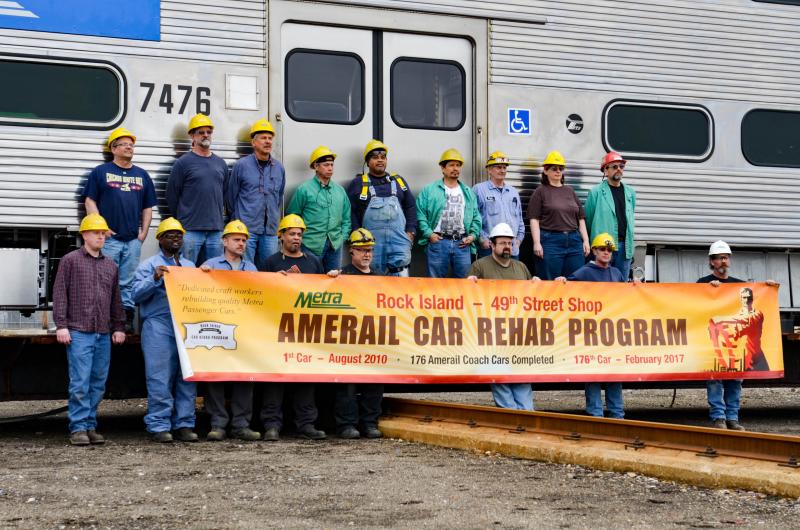
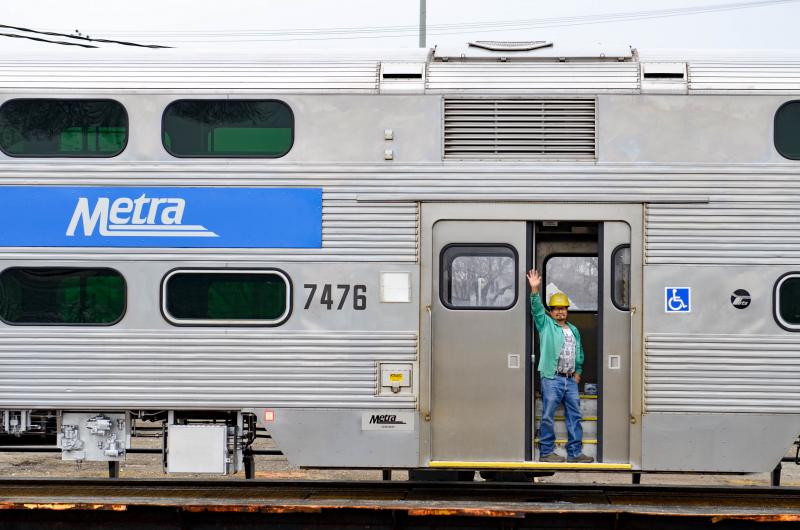
Metra streamlined the rehab process so a car could be completely stripped and rebuilt in 32 days. The operation is set as an assembly line, with four stations where various tasks are performed. Of the 60 carmen, electricians and sheet metal workers assigned to the project, about 18 work at each of the first three stations with the rest at the last station.
This level of expertise will not go to waste now that the program is complete. Although the crew has barely celebrated this in-house achievement, they’ve already moved on to the Nippon Sharyo Rehab Program. Speeding up production to seven days per station, the crew will rehab 302 cars that were built by Nippon Sharyo between 2002 and 2008.
